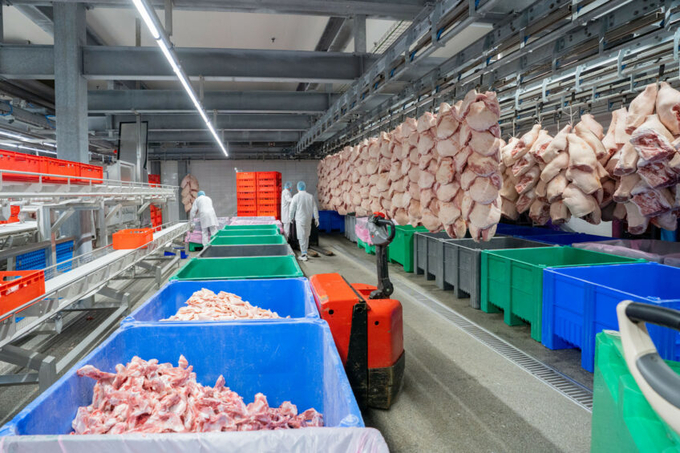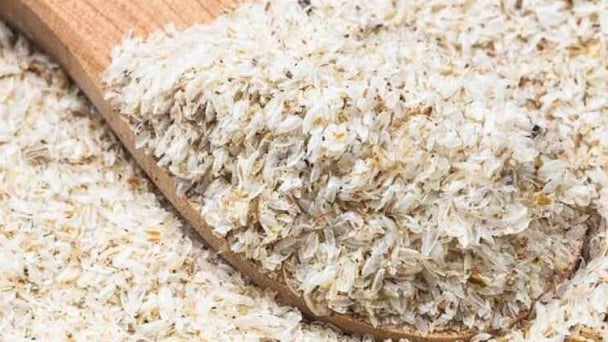May 29, 2025 | 11:21 GMT +7
May 29, 2025 | 11:21 GMT +7
Hotline: 0913.378.918
May 29, 2025 | 11:21 GMT +7
Hotline: 0913.378.918

Photo: Jan Willem Schouten.
For 2025, the EU per capita consumption is expected to stabilise at 30.9 kg while less competitive EU pigmeat prices make exports to the global market a real challenge.
Those are the conclusions of the European Commission in its latest Short-term outlook of agricultural markets. ‘After experiencing severe shocks and high volatility in the previous years, EU agricultural markets are showing positive signs of stabilising as input costs have steadily declined over the past months and food inflation has returned to a moderate rate. The general macroeconomic and food price environment points to possible improvements in demand for agri-food products in most sectors. Nonetheless, the outlook remains subject to a high degree of uncertainty, linked to weather events, geopolitical conflicts and animal and plant diseases’, the EC says.
Brussels experts expect the 27 EU countries to produce 20.77 million tonnes of pork in the current year, which would be half a percent less year-on-year. In the first half of 2024, EU pigmeat production went up by 1.7% year-on-year. The biggest increases were recorded in Poland with 77,000 t (+9%), in Hungary with 18,000 t (+8.3%) and in Germany with 18,000 t (+0.9%). Production declined in the leading European pork producer Spain by 5,000 t (0.2%). In the same period, fewer animals have been slaughtered in Denmark, but average carcass weights increased (+17,000 t, +2.5% year-on-year).
Consumption has been stable so far in 2024, without the usual increase in the summer months. The EU per capita consumption is expected to decrease further to 30.9 kg by the year’s end (-0.4% year-on-year). For 2025, the EU per capita consumption is expected to stabilise at 30.9 kg year-on-year.
Pork export can reach 2.93 million tonnes in 2024, 2.5% less than in 2023 with a further modest decline of 2.0% to 2.87 million tonnes in the coming year. The EC warns that pigmeat prices make exports to the global market a real challenge. In the first half of 2024, EU exports recorded a decline of 6% year-on-year, mainly to China (-27%). In addition, exports to the UK decreased also (3% year-on-year).
Strong price competition from Brazil and the US created challenges for EU exports to some high-value markets like Japan or Australia, although there were gains in South Korea and lower-value markets such as the Philippines and Vietnam. If the price gap between the EU and international competitors continues to decrease, this could boost EU exports on the international market. With a possibility of countervailing duties from China, pigmeat exports in 2025 could further decline.
Total EU pigmeat imports were 53,711 tonnes in Jan-June 2024 (+1% year-on-year). Imports from the UK account for about 2/3 of total EU pigmeat imports and decreased by 2.2% in the same period. At the same time, imports from Chile increased by 8,600 tonnes (+173%) due to the new FTA between Chile and EU. However, with the expectation of a declining UK pigmeat demand in 2025, EU imports could decline by 2% in 2025.
(PP)

(VAN) The import-export turnover between Vietnam and Singapore rose amid a trade rebound, with machinery, electrical equipment, and fuels making up the majority of the transaction value.

(VAN) Director General of the General Administration of Customs of China, Ms. Sun Mai Jun, has pledged to implement measures that will ease the import process for Vietnamese agricultural products.

(VAN) Although Vietnam is still increasing its coffee exports, the industry is currently in the process of determining market strategies in response to the U.S. imposition of reciprocal tariffs.

(VAN) With rising demand in Muslim-majority countries, Halal certification is becoming a critical passport for Vietnamese agricultural products seeking sustainable market access and consumer trust in the Middle East and Africa.

(VAN) Vietnam’s fruit and vegetable exports to the U.S. are rising sharply, and exporters are hoping that any upcoming reciprocal tariffs will be set at manageable levels.

(VAN) Despite meeting quality standards, Vietnamese rice bran exporters still face difficulties with administrative procedures under the new protocol.

(VAN) The U.S. is tightening import tariffs and origin inspections, requiring Vietnamese businesses to proactively prepare in terms of legal compliance, supply chains, and appropriate export strategies.